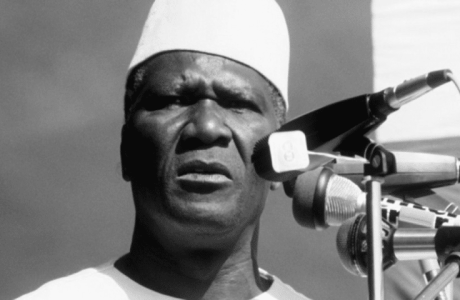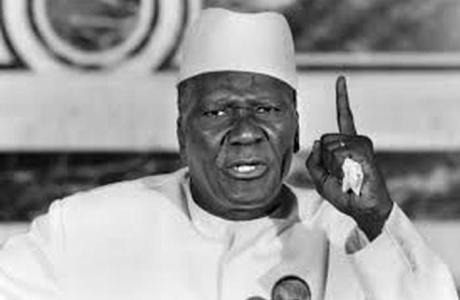
26 March 2024, Conakry - A thrilling day marked the capital of Guinea on Tuesday, as the country gathered to commemorate the 40th anniversary of the death of President Ahmed Sékou Touré, the hero who led Guinea to independence. The event, held at the mausoleum of the great Fayçal mosque, brought together high-ranking political figures, including the Minister of Defence and the Chief of Staff of the armies, as well as comrades of independence and relatives of the late leader.
The ceremony began on a solemn note, with the reading of the Holy Quran and the blessings for the rest of the soul of President Sékou Touré. The atmosphere was full of emotion, with the participants remembering the struggles and triumphs of the founding father of the Guinean nation.
Madifing Diané, former governor of Labé and one of the last survivors who attended the funeral of Sékou Touré in 1984, spoke, sharing touching memories. "It is with a lot of emotion that I stand here today. I am the only one here who carried the coffin of President Ahmed Sékou Touré's fire, thank God for his blessings," said Diané, the trembling voice of emotion.
In paying tribute to Sékou Touré's struggle for independence, Diané urged the younger generation to follow in his footsteps. "It is the children of this independence, this generation that God has sent us today, and I am firmly convinced that it is the good one who has come to honor us. They did better than us and our elders."
The former governor also called for unity and tolerance, stressing that no one is perfect. "Let us be tolerant of those who lead us. The President of the Transition was only 3 years old on the day of the death of President Ahmed Sékou Touré. They are the ones who honor us today."
Oyé Béavogui, Acting Secretary General of the PDG-RDA, the party founded by Sékou Touré, expressed his gratitude to the transitional president, Colonel Mamadi Doumbouya, for having rehabilitated the memory of the father of independence through various initiatives.
"Today, President Ahmed Sékou Touré goes beyond his political personality of the CEO-RDA, he is celebrated by all African peoples," Béavogui said. "We take this opportunity to thank the CNRD for their commitment and the rehabilitation of the Ahmed Sékou Touré fire memory."
Beavogui praised the courage of President Doumbouya, one of the few heads of state who dared to rehabilitate the memory of Sékou Touré after decades of negligence. "It is a strong symbol for the people of Guinea, to tell them that, whatever has happened during our contemporary history, there are also people who have objectively marked their passage to the head of state."
The ceremony continued with the deposition of a gerb of flowers by the Minister of Defence, followed by a moment of gathering on the tomb of the founder of the mausoleum. Blessings concluded this vibrant tribute to the man who paved the way to freedom for Guinea.
Although controversial for some aspects of his reign, Ahmed Sékou Touré remains an emblematic figure in Guinea's history. His fierce fight against French colonialism and unwavering commitment to independence inspired generations of Guineans and African leaders.
Born in 1922 in a small village in Guinea, Sékou Touré climbed the ladder of the independence movement, becoming the charismatic leader of the Democratic Party of Guinea (PDG). His flaming speech at the 1958 referendum marked a decisive turning point, with Guinea becoming the first French colony to reject the proposal for a French "Communauté" and resolutely choose independence.
Despite severe economic reprisals imposed by France, Sékou Touré led the newly independent Guinea with an iron hand, adopting socialist policies and establishing a one-party regime. His reign has been plagued by human rights violations and political repression, but his legacy as a liberator remains deeply rooted in the Guinean national consciousness.
This commemoration of the 40th anniversary of his death testifies to the lasting importance of Sékou Touré in the history of Guinea. In paying tribute to its struggle for freedom, the country seems determined to preserve its legacy while embracing a more promising future.
As Béavogui said, "Whatever has happened in our contemporary history, there are also people who have objectively marked their passage to the head of state." Ahmed Sékou Touré will remain forever engraved in the annals of Guinea as the hero who broke the chains of colonialism, paving the way for a future of independence and sovereignty.














